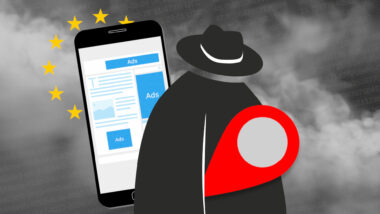Since the outbreak of the Corona pandemic, much of the work in the European Parliament has been done virtually. However, the choice of tools is causing controversy. In some committees, MEPs have started voting with an app called iVote. To use the app, an Apple device and an account with the US company are required.
This is remarkable, not least because the European Union has repeatedly taken action against Apple in recent years. The EU Commission ordered the digital giant to pay back 13 billion euros in taxes in Ireland in 2016. It also recently launched an investigation into Apple’s App Store for antitrust violations. And yet Apple’s infrastructure will soon be indispensable for voting in the European Parliament.
The iVote app is being used or tested in several of the 22 parliamentary committees, including the important committees for the internal market and the budget. The app is intended to replace a procedure that was introduced at the beginning of the pandemic. Since then, votes have been cast mostly by e-mail using scanned ballots. This shall continue to be possible, but committee chairmen are urging the use of the new app.
iVote is an in-house development of the IT department of the Parliament, a document circulated to MEPs notes. It can only be accessed via Apple’s App Store. In order to explain the use of the app to Members of Parliament, the Parliament has produced a six-minute video explaining the app.
For votes of MEPs in plenary, the Parliament continues to use its previous system with scanned ballot papers. The system has recently been improved with additional security measures. For example, voting papers are now transmitted via a VPN connection.
However, this improved infrastructure for voting with scanned ballot papers cannot be used for committees, according to the document sent to MEPs. However, the parliament could not explain why this is not possible when asked by netzpolitik.org.
„Just a bad joke“
Some MEPs are critical of the use of iVote. „The dependence on a big tech company is completely unnecessary“, says Martin Schirdewan, the co-president of the left-wing GUE/NGL group. His group protested against the use of iVote in a letter to the president of the Parliament, David Sassoli.
For Schirdewan, it is only the most recent in a series of developments, as he says already a large part of parliament systems are only accessible via Apple devices. „Parliament is tying itself unnecessarily to Apple, that is unfortunate and inexplicable,“ he told netzpolitik.org.
Criticism also come from Marcel Kolaja, a Czech pirate MEP who is part of the Green group. Making the vote in parliament dependent on a US company is „just a bad joke“, Kolaja criticises in a blog entry.
Kolaja, who is one of 14 vice-presidents of the parliament, says that when using iVote, an iCloud account with Apple is necessary for voting. „In addition to it, iVote also sends all voting data to the cloud storage,“ he writes in his blog. If MPs refused to accept the iCloud terms of use, they could not vote,
More tempered criticism comes from German social democrat Katarina Barley, who also is a vice-president of the parliament. „For me, the use of such an app can at best be temporary, this is also a question of Europe’s digital sovereignty,“ says the former justice minister.
Barley hopes that in future, instead of using the app, it will be possible to vote in committees using a secure e-mail voting procedure.
In its FAQ, the parliamentary administration emphasises that login via iCloud is a „technical necessity“. However, the app does not really use the Apple account to authenticate the ballots and is not able to link an iCloud account to a specific person. „Merely logging in to vote with iVote does not per se give any data to Apple.“
However, some open questions about the use of the app remain. The data protections rules of the EU institutions foresee a data protection impact assessment (DPIA) for important IT systems, but it remains unclear whether one was done for iVote. Only last year, the EU’s data watchdog stopped a project in which the parliament handed voter data to controversial US company NationBuilder.
A parliament spokesperson told netzpolitik.org that the iVote app was only a temporary measure. She said that app data was encrypted and that „cybersecurity aspects of this system received a positive assessment“. The spokesperson did not elaborate on the earlier question on why the e-mail voting system used in the plenary could not be used in comittee votes and whether a DPIA was needed for iVote.
While the app has some critics on the left, other MEPs are more sympathetic to the attempt to introduce new technologies. „The European Parliament has had to digitise its way of working at breakneck speed“, says Danish MEP Karen Melchior, who is part of the liberal Renew Europe group.
„Within two weeks, we went from only working sur place and requirements for physical copies and signatures for everything to online meetings, online voting and 100% teleworking“, she says. „Hopefully we can use the Covid-19 lockdown to improve the way the European Parliament works also in the years to come.“
Update on June 29, 2020: The statment by the parliament spokesperson was added after publication. The first name of Mr. Kolaja was corrected from Martin to Marcel.





0 Ergänzungen
Dieser Artikel ist älter als ein Jahr, daher sind die Ergänzungen geschlossen.